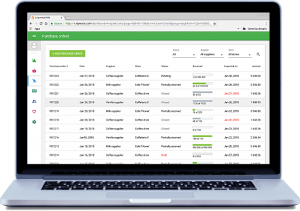Inventory is an essential component of inventory management, and therefore of supply management within a business. The correct completion of the inventory influences the purchasing of the company, as well as all financial decisions. Setting up a company’s inventory goes well beyond accounting and administrative formalities.
What does the inventory consist of?
The term inventory refers to the time when the goods stored in the company are counted. Whether these are elements that go into the manufacture of products, or items that will be directly sold, the inventory allows a report to be made at a given time T. The inventory managers will therefore note goods that have not yet been sold, as well as all raw materials purchased by the company.
From an accounting point of view, it makes it possible to record, identify, but also evaluate each object. While inventory management helps keep the business going, inventory helps control assets.
Logistical organization of the inventory
To implement the inventory, organization is the key. By establishing common rules, errors can be avoided when counting goods. For example, you can draw up a plan of the sites on which the inventories will be carried out, and designate managers per site. Also simply choose a counting direction so as not to write down the same items several times.
Recounting is also essential in order to control inventory, and prevent the occurrence of false accounts.
The data retrieved during the inventory is then entered into business management software. When an ERP solution is used, all of this information is centralized in a database that can be used at several levels (production of accounting statements, tax returns, etc.).
When to take an inventory?
It is imperative to carry out the inventory at least once a year. Depending on the size of the business, its activity, and the volume of goods involved, the inventory is carried out more or less regularly.
Continuously or annually, there is no general rule regarding the pace of inventories. It is up to the managers of the company to determine the most appropriate method with the teams concerned.
However, it is certain that continuous inventory management brings greater precision and reliability to the data used for purchasing and supply management. In this sense, the choice of inventory periods is decisive for the company’s strategy.
Inventory: a legal obligation for your business
Any trader with a buy / resale activity, or who buys raw materials is affected by inventory. It must be comprehensive in order to reflect the assets of the company in the balance sheets that are filed at the end of each fiscal year.
The inventory book is one of the mandatory accounting books to be kept within a company. This modality only concerns accounting years created before January 1, 2016. It identifies assets and liabilities.
Inventory management does not replace inventory
The inventory must be carried out physically at least once a year. As for inventory management, it provides a view of the condition of goods and the level of supply using professional tools. POS system with Inventory management software is based on recorded sales and purchases. It is an essential platform for the management of the company. Carrying out the inventory is important for the company’s accounting. Inventories are listed in a precise and exhaustive manner in order to calculate the assets.
For more details, please visit: alfacybernetics.com
 Bloggers Trend Keeping You Up To Date
Bloggers Trend Keeping You Up To Date




